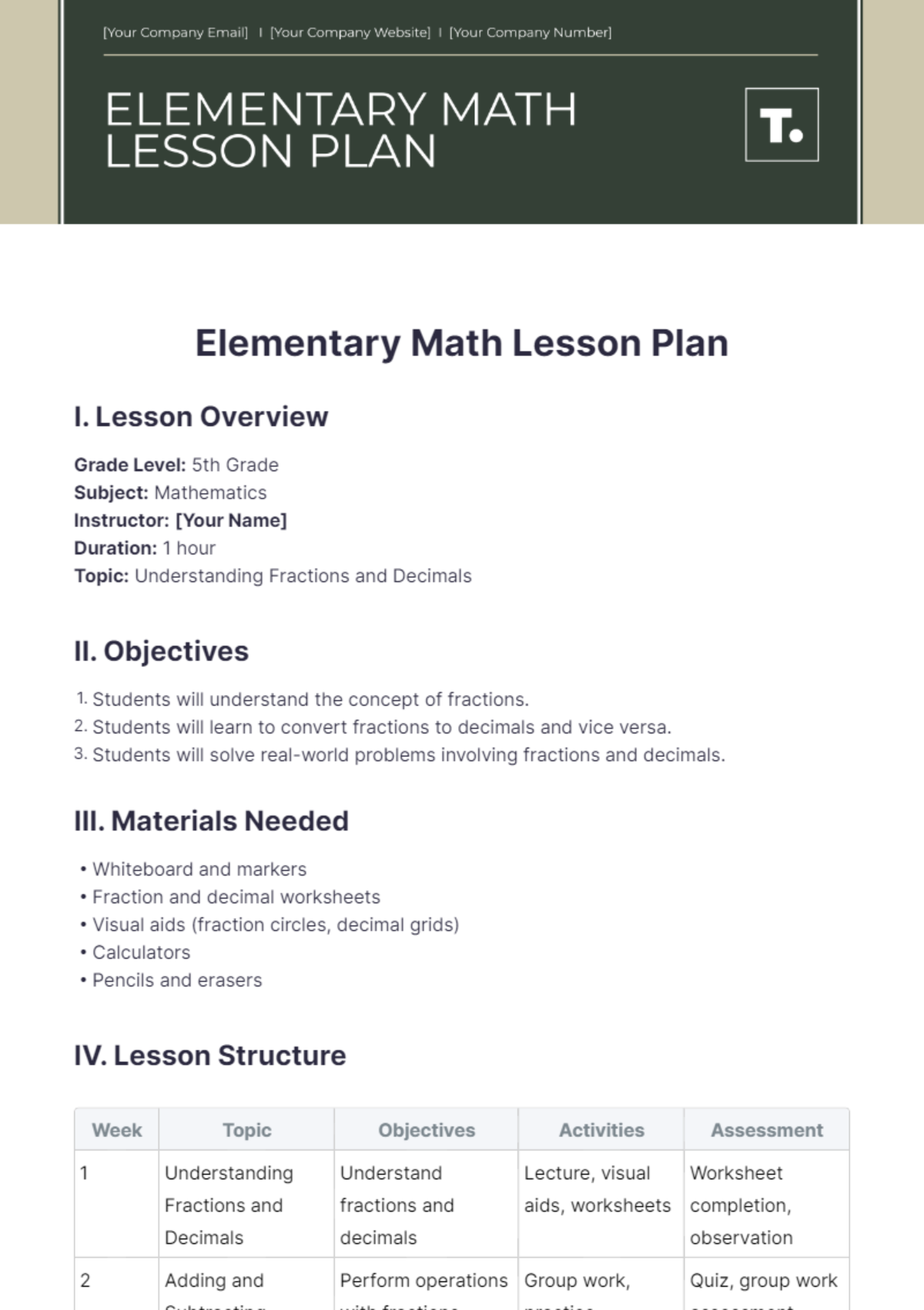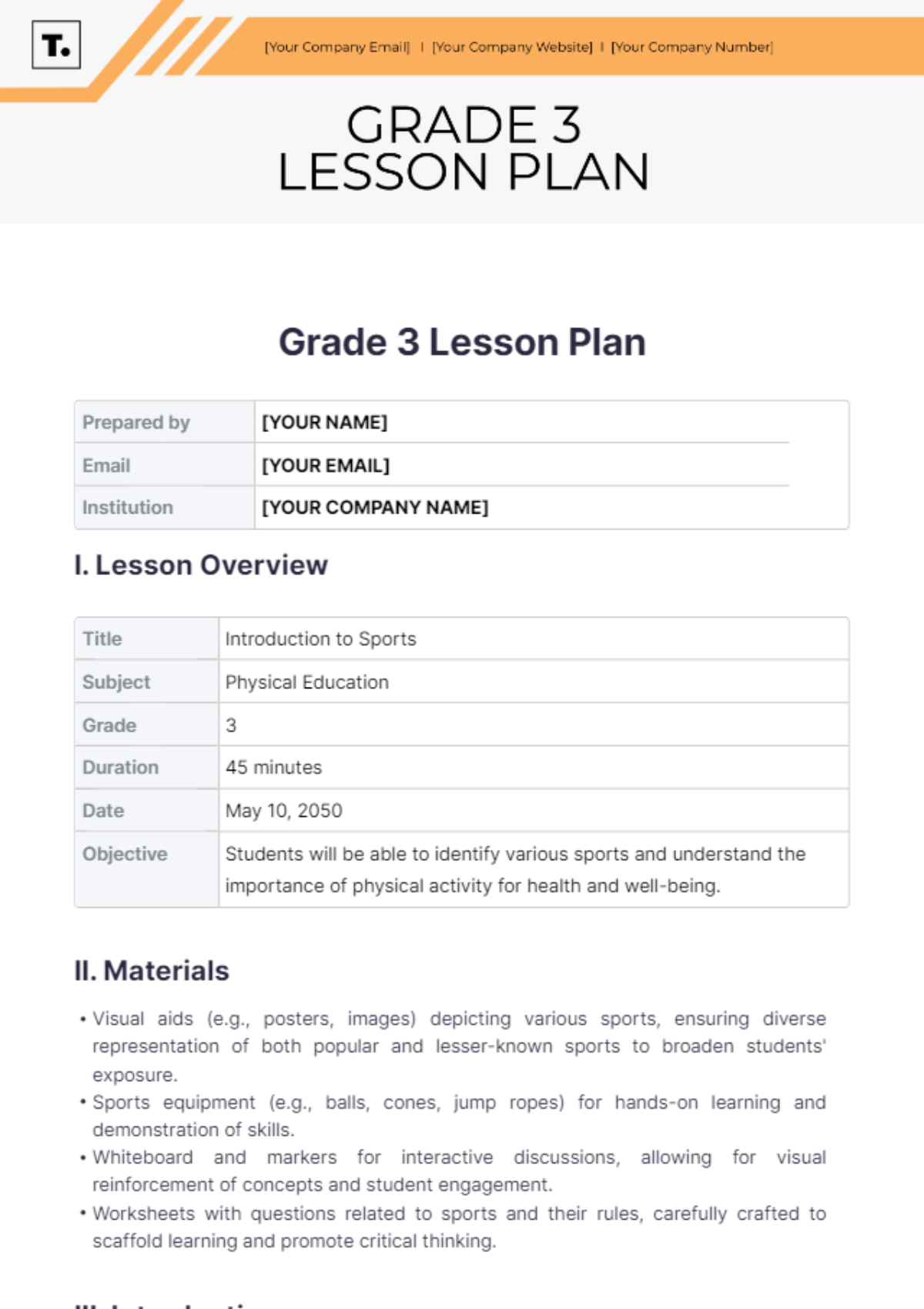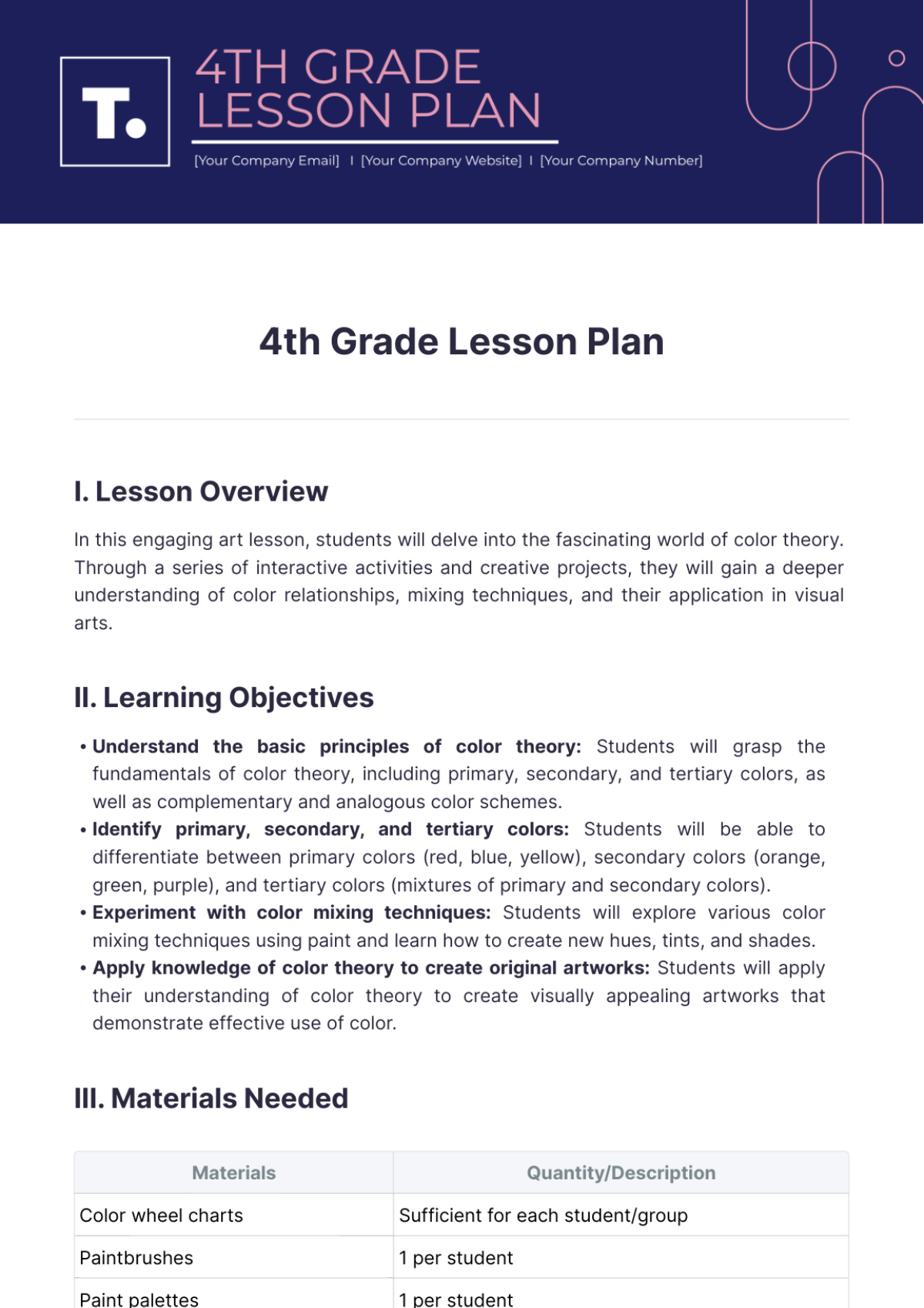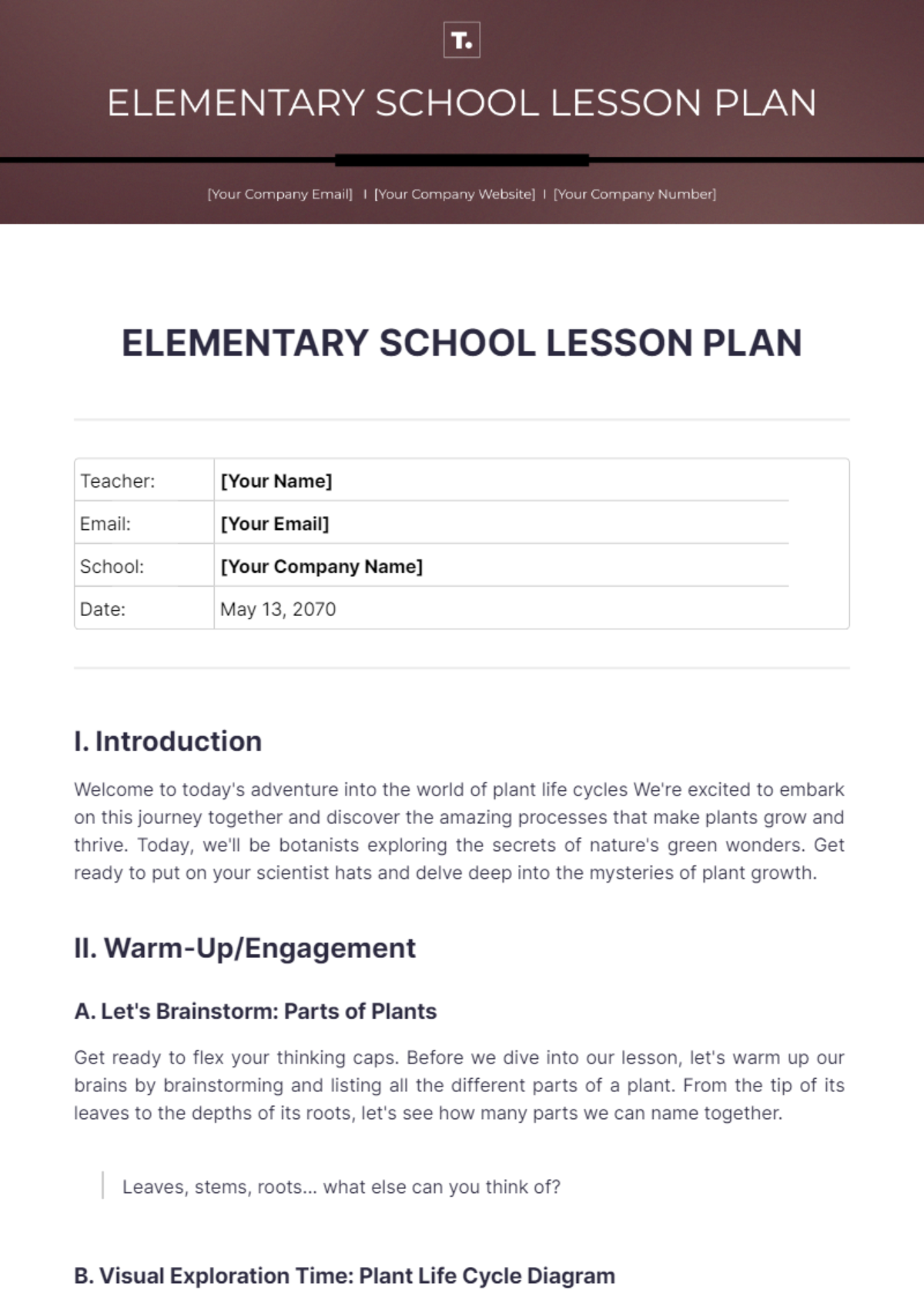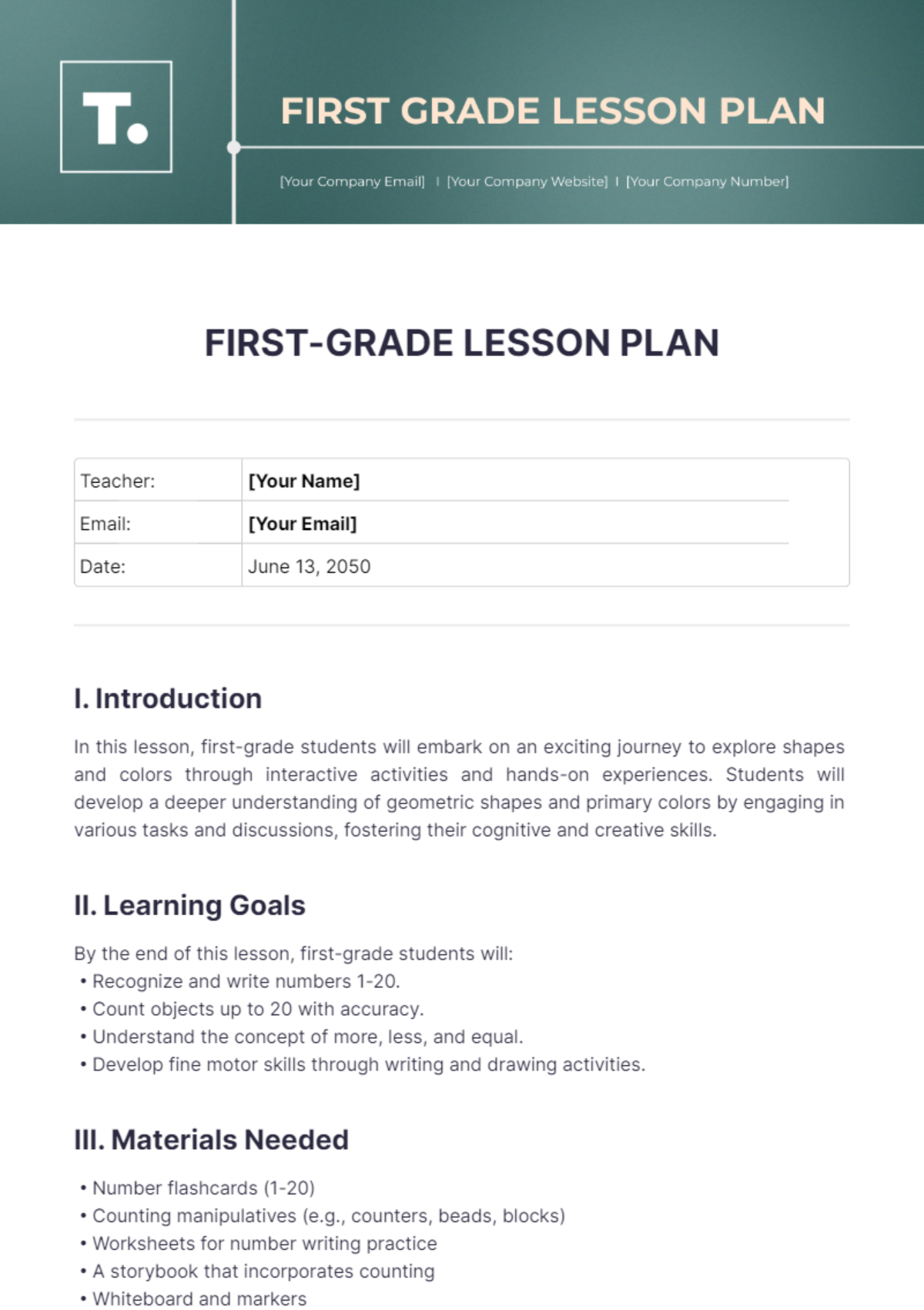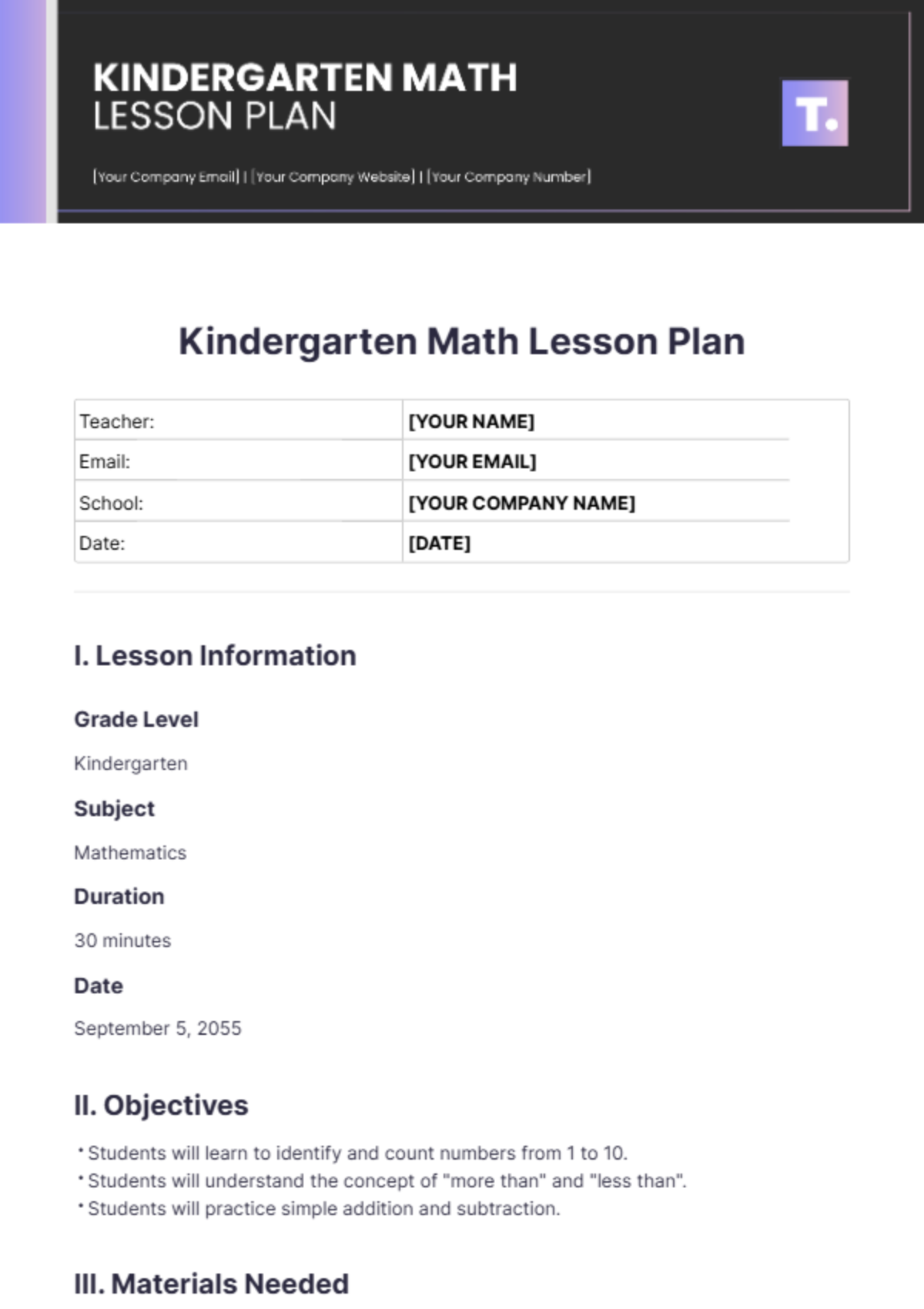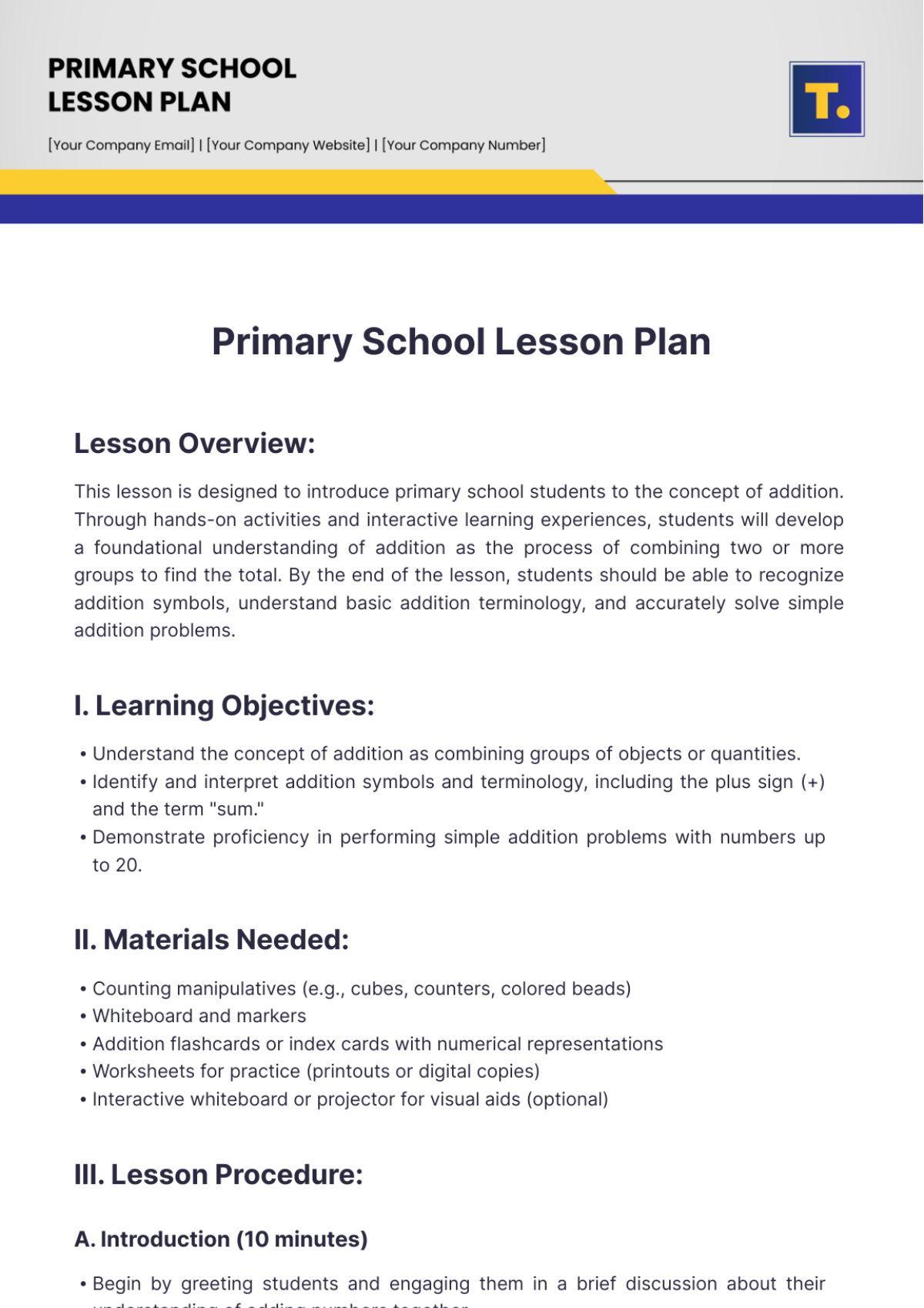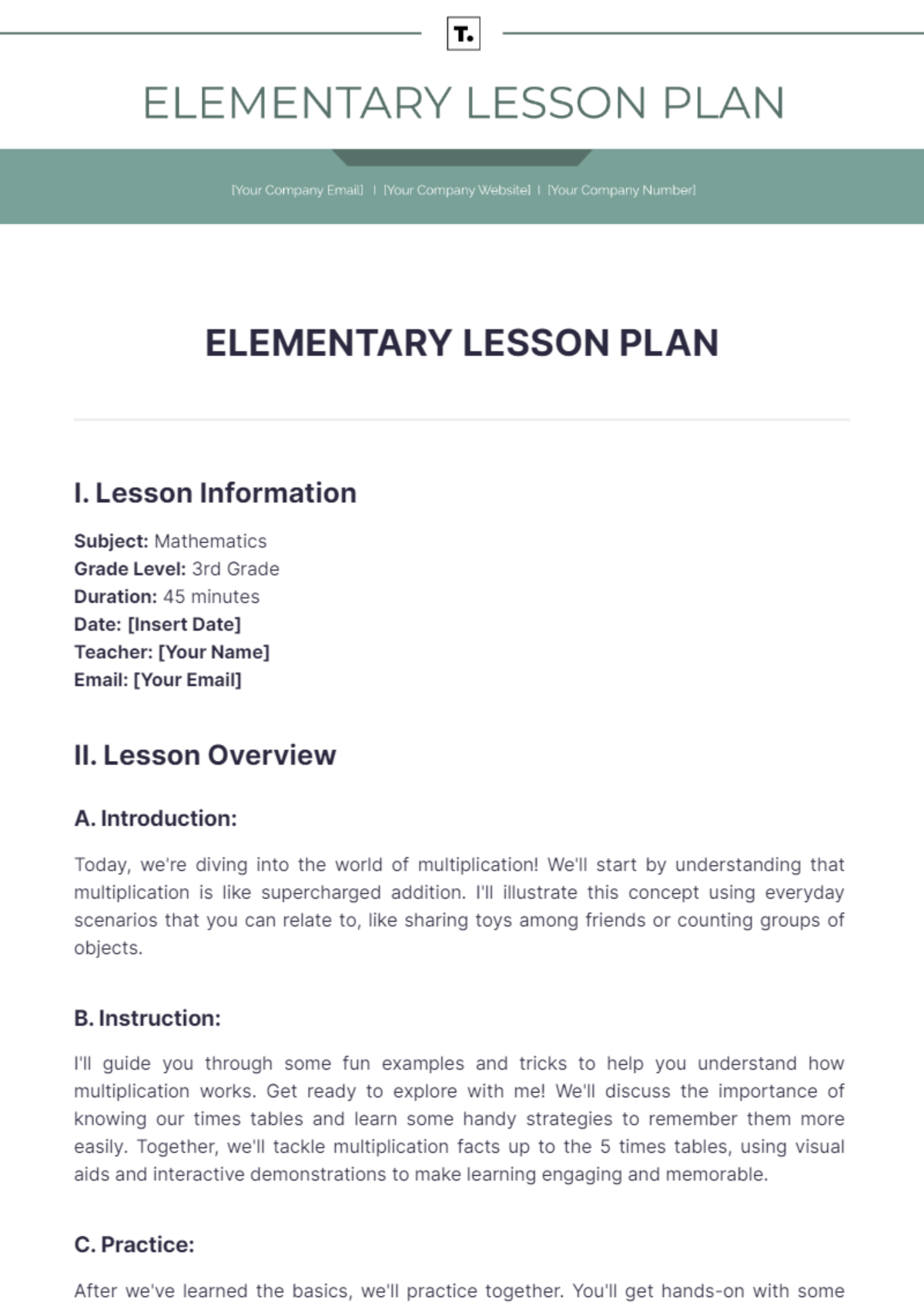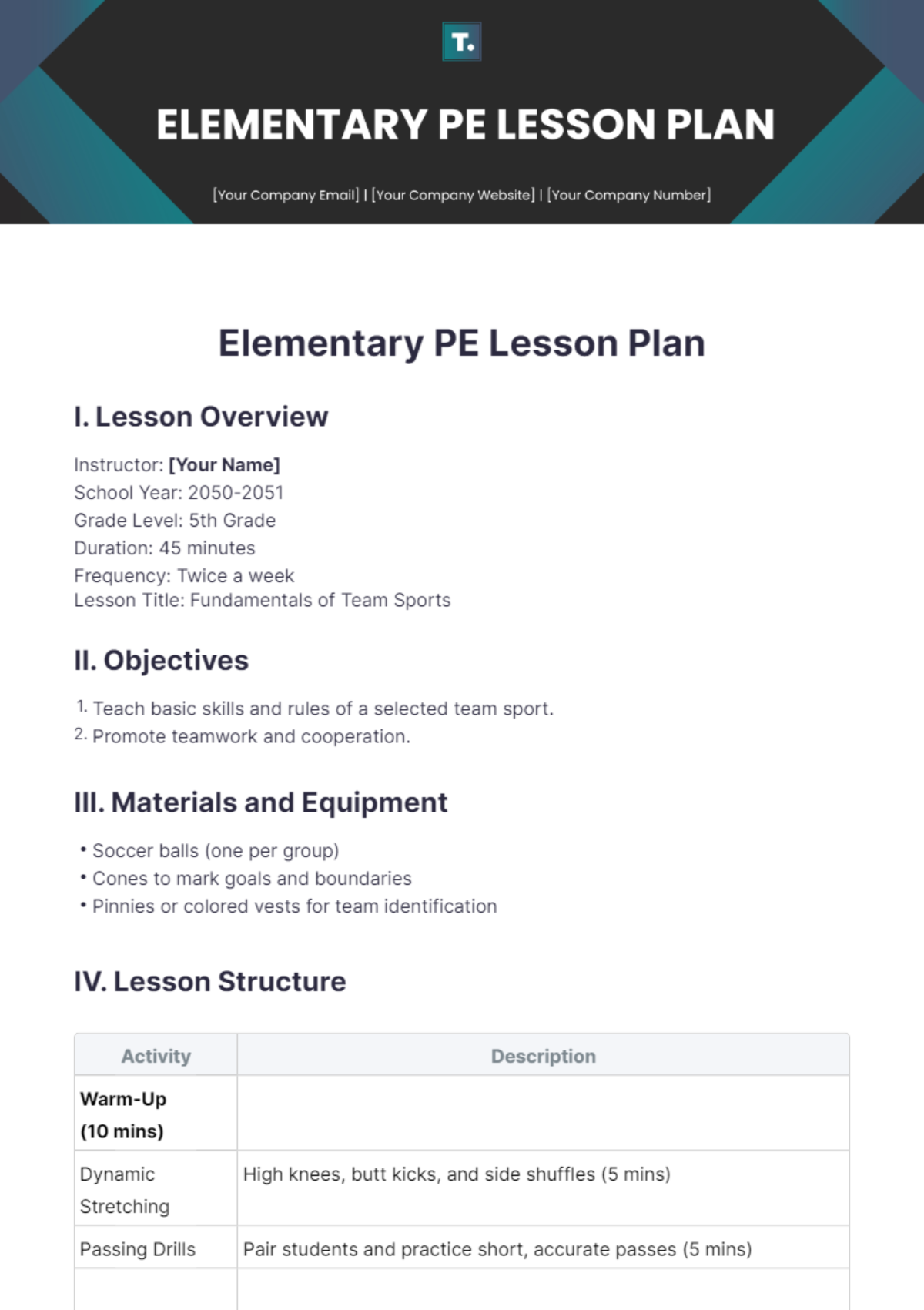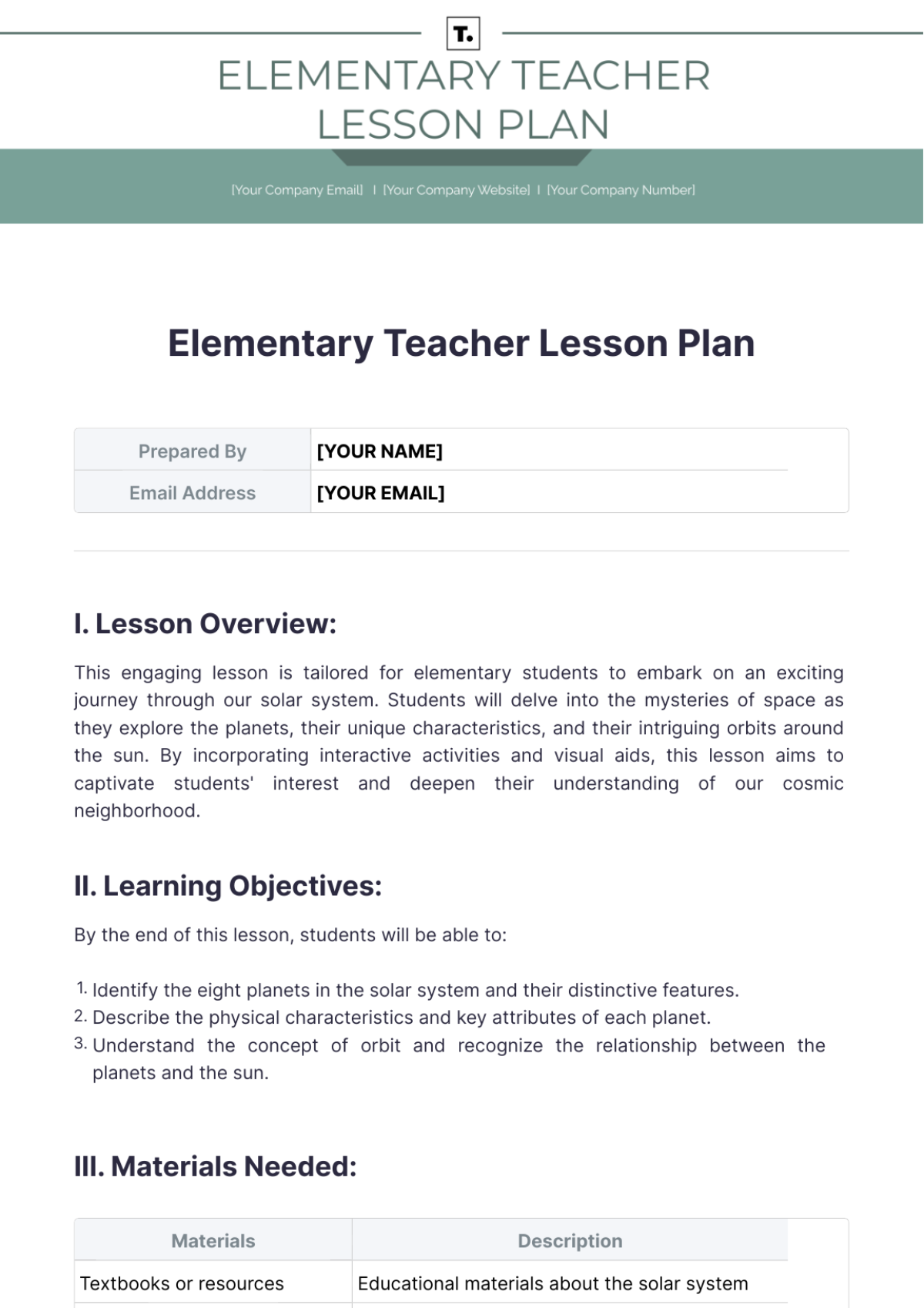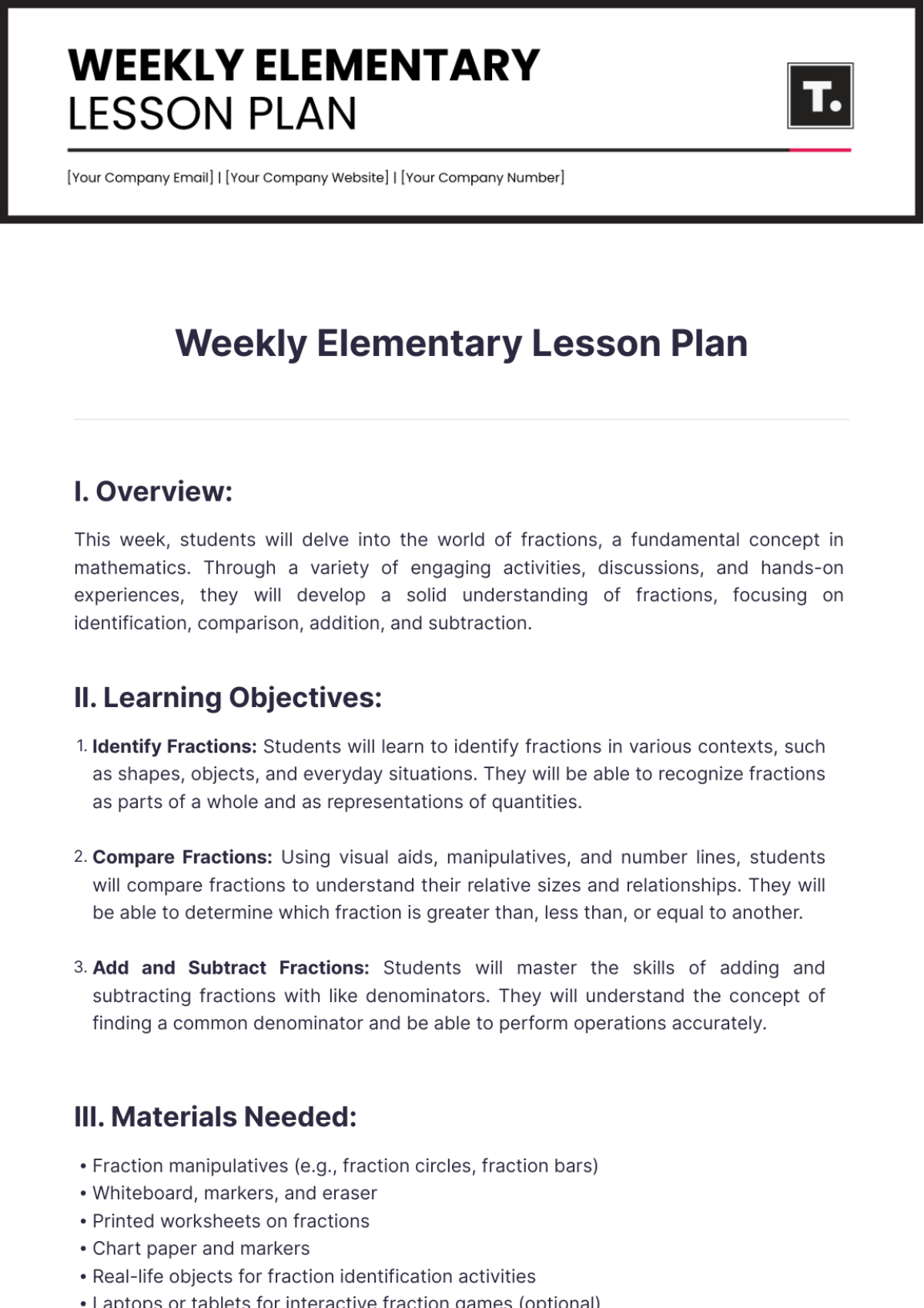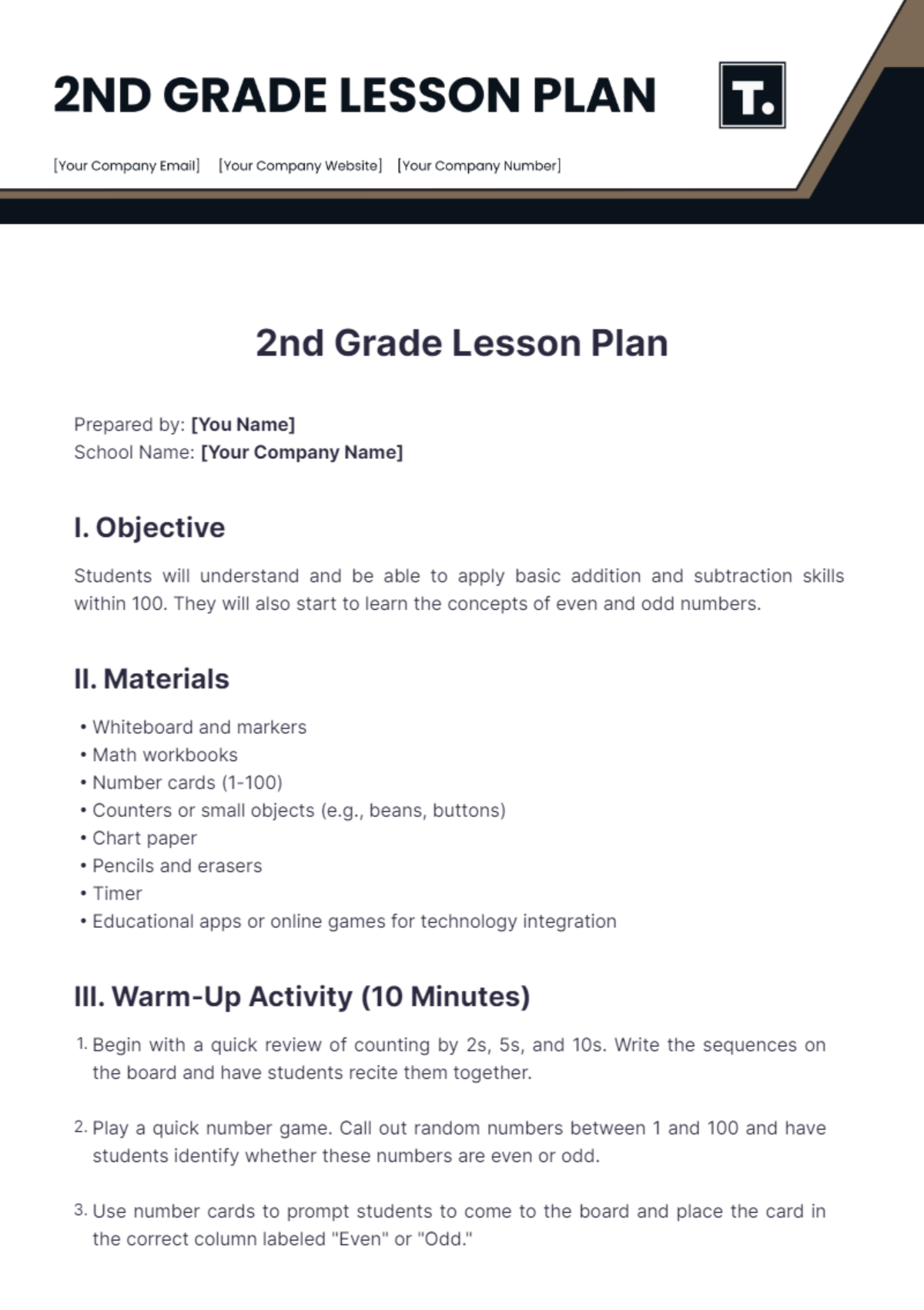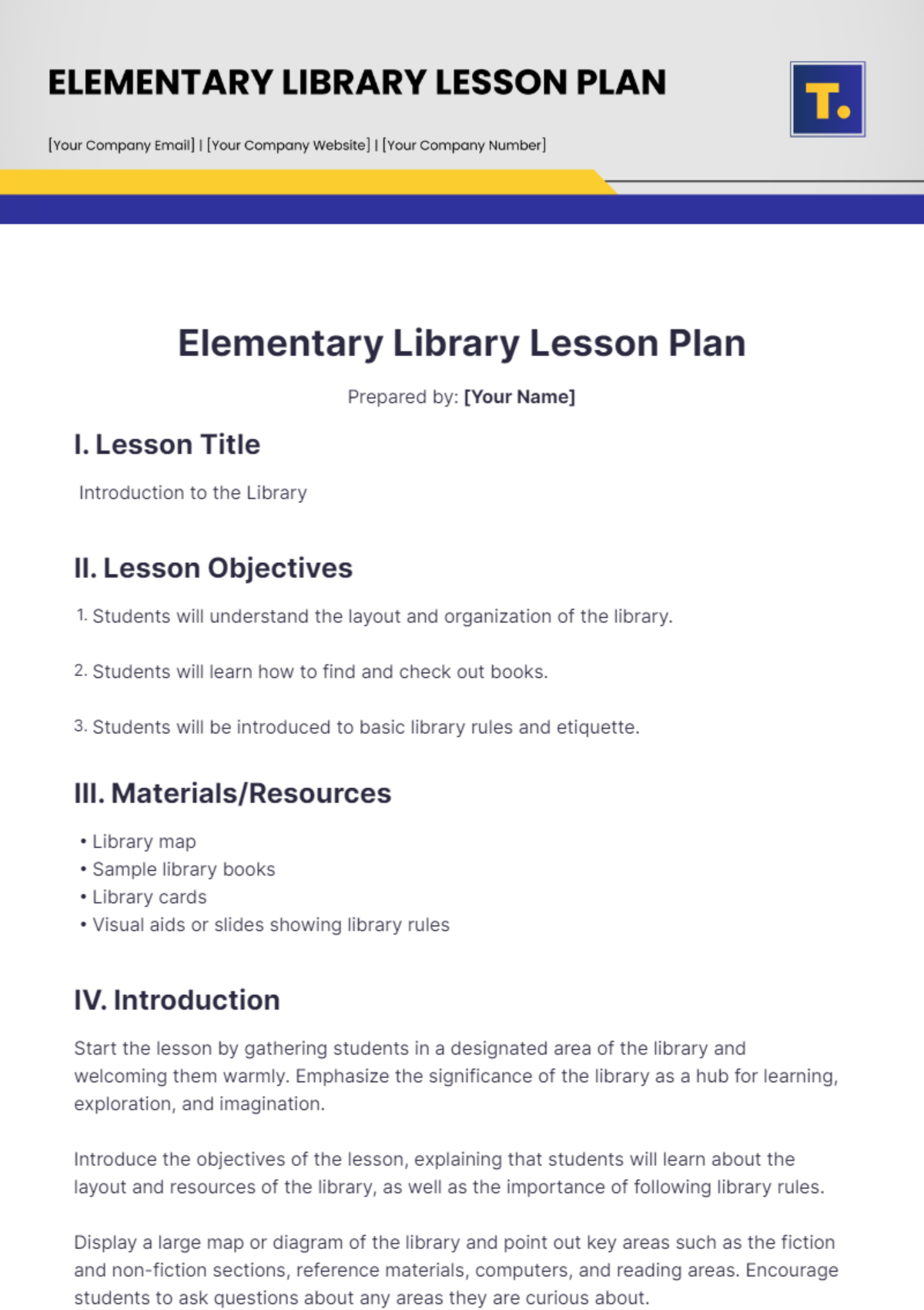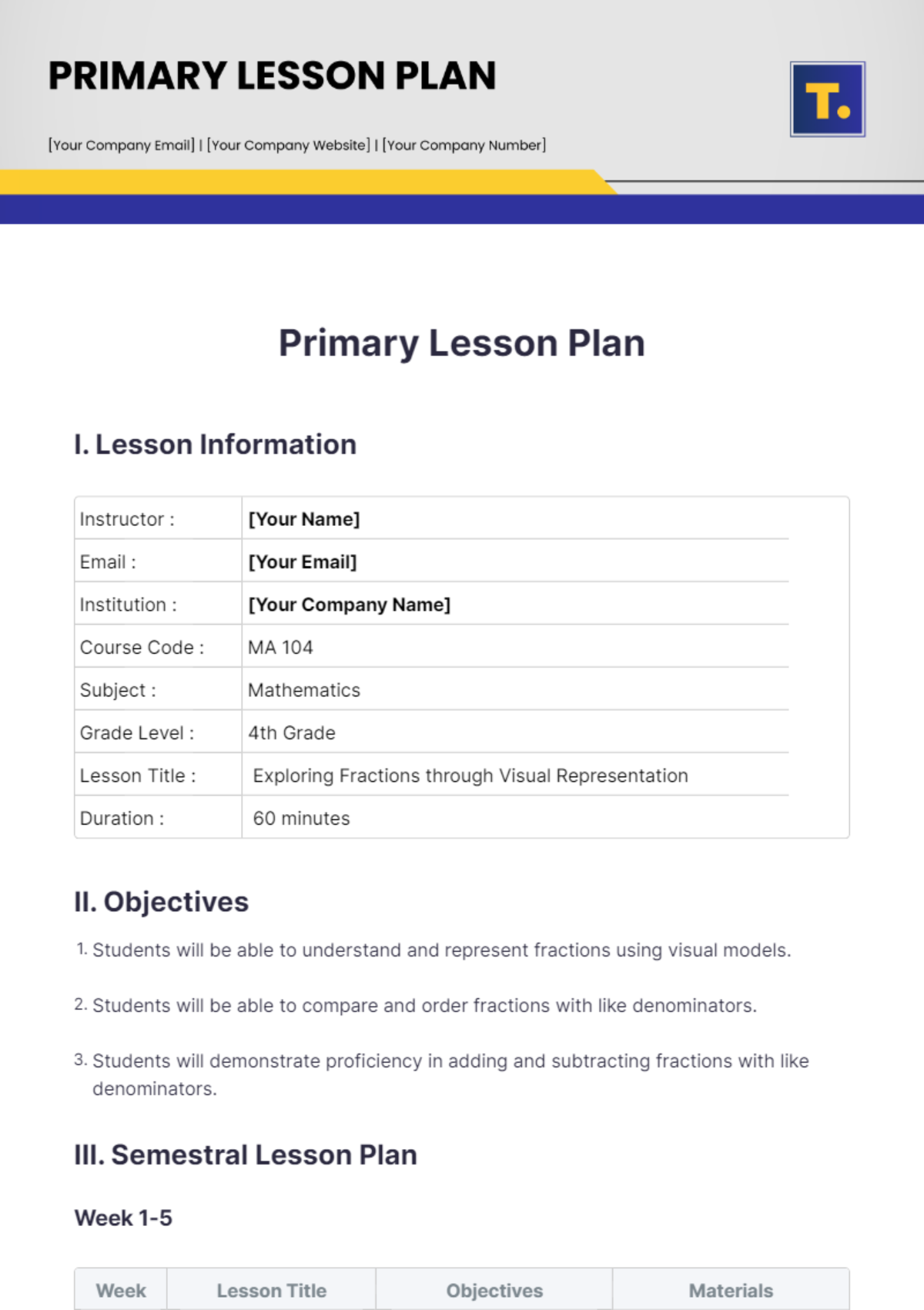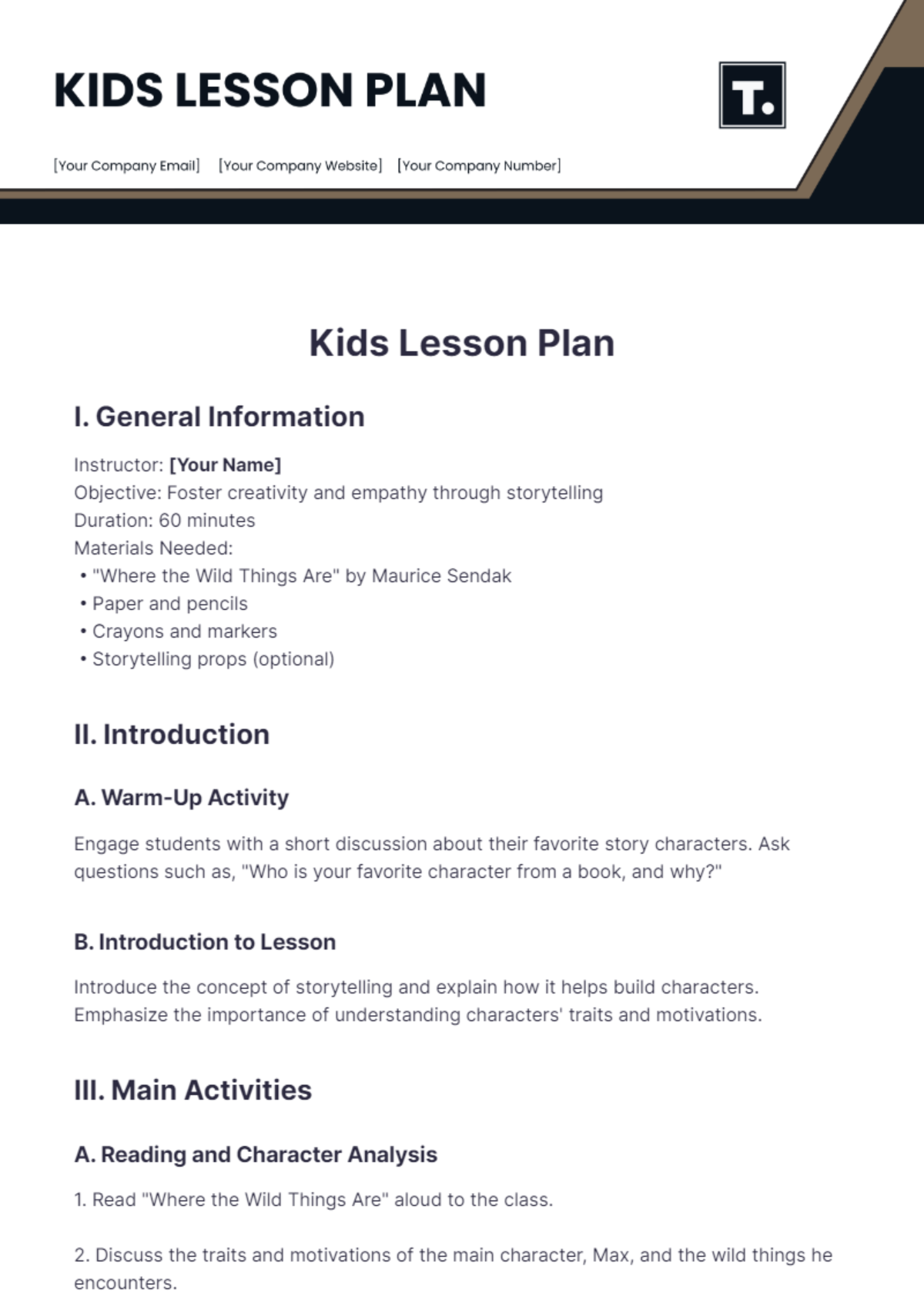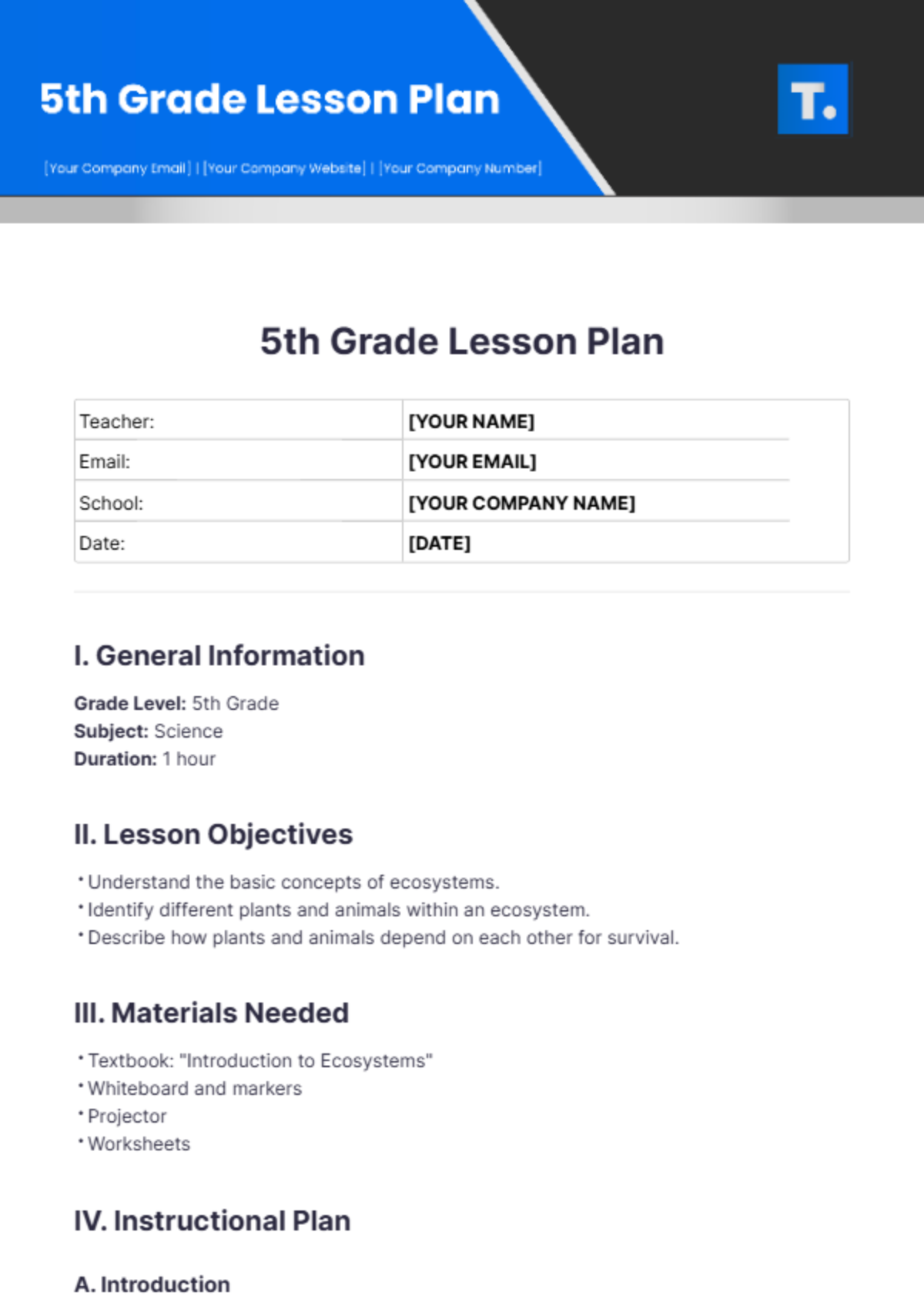Elementary Math Lesson Plan
I. Lesson Overview
Grade Level: 5th Grade
Subject: Mathematics
Instructor: [Your Name]
Duration: 1 hour
Topic: Understanding Fractions and Decimals
II. Objectives
Students will understand the concept of fractions.
Students will learn to convert fractions to decimals and vice versa.
Students will solve real-world problems involving fractions and decimals.
III. Materials Needed
Whiteboard and markers
Fraction and decimal worksheets
Visual aids (fraction circles, decimal grids)
Calculators
Pencils and erasers
IV. Lesson Structure
Week | Topic | Objectives | Activities | Assessment |
|---|---|---|---|---|
1 | Understanding Fractions and Decimals | Understand fractions and decimals | Lecture, visual aids, worksheets | Worksheet completion, observation |
2 | Adding and Subtracting Fractions | Perform operations with fractions | Group work, practice problems | Quiz, group work assessment |
3 | Multiplying Fractions | Multiply fractions accurately | Hands-on activities, examples | Worksheet, participation |
4 | Dividing Fractions | Divide fractions correctly | Step-by-step instruction, exercises | Quiz, homework review |
5 | Introduction to Decimals | Understand and use decimals | Interactive lecture, visual aids | Observation, classwork |
6 | Adding and Subtracting Decimals | Perform decimal operations | Group activities, practice problems | Quiz, group work |
7 | Multiplying Decimals | Multiply decimals accurately | Individual exercises, examples | Worksheet, participation |
8 | Dividing Decimals | Divide decimals correctly | Guided practice, exercises | Quiz, homework review |
9 | Fractions to Decimals Conversion | Convert between fractions and decimals | Interactive lecture, practice | Worksheet, classwork |
10 | Decimals to Fractions Conversion | Convert between decimals and fractions | Group work, step-by-step examples | Quiz, participation |
V. Assessment
Formative assessment will be conducted continuously throughout the lesson. The teacher will observe student participation and engagement during guided practice and group activities, noting areas where individual students may need additional support or challenge. Informal quizzes and questioning will be employed to check for understanding, allowing the teacher to gauge the effectiveness of instruction and make real-time adjustments. Student work on class activities will also be reviewed to ensure comprehension and mastery of concepts.
Summative assessment will include the collection and grading of worksheets and homework assignments, which will provide a clear picture of each student's grasp of the material. Performance on quizzes and the final exam will be evaluated to measure overall understanding and retention of the topics covered during the semester. Detailed feedback will be provided to students and parents, highlighting strengths and identifying areas for improvement, ensuring a comprehensive approach to student development and learning outcomes.
VI. Resources
A. Suggested Reading
"Fractions and Decimals Made Easy" by J.R. Doe
"Math for 5th Graders" by Jane Smith
Online resources and interactive games
B. Additional Activities
Interactive fraction games on educational websites
Homework assignments to reinforce daily lessons
Math-related projects and presentations to apply concepts learned
VII. Reflection
Post-lesson, the teacher will reflect on the methods and activities that were successful, analyzing why they worked well and how they contributed to student engagement and understanding. Identifying areas for improvement is crucial, and the teacher will consider new strategies and approaches to better meet the diverse needs of students in future lessons.
Student feedback will also be systematically collected to gain insights into their learning experiences and perceptions of the lesson. This feedback will inform the teacher’s adjustments and refinements of teaching practices, ensuring that future lessons are tailored to enhance student comprehension and interest. By encouraging open communication and fostering a responsive learning environment, the teacher aims to continuously improve the educational experience and outcomes for all students.
